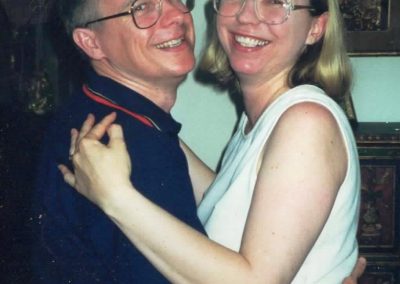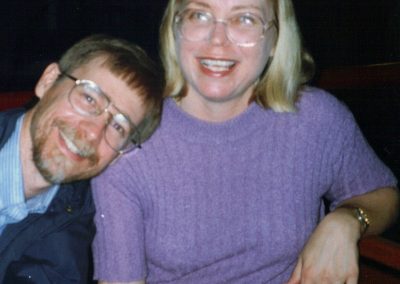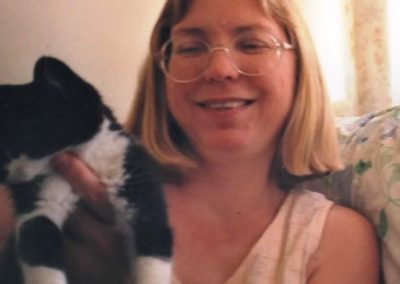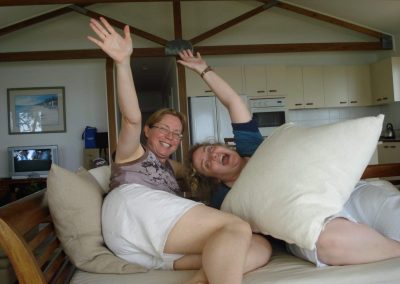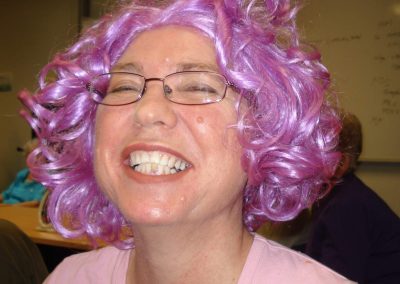Being Ruth
Coming together to be Ruth, 2016 into the future
The Buch family have good neighbours and friends in Callendar Street, Michelle Simpson, with partner, Steve, and their two daughters in the similar age ranges as Genevievre (slightly older than Chloe) and Marguerite (same year in high school as Sophie). Michelle was already becoming a close friend of Ruth during those last years. It is sad that had Ruth lived longer there would have been a special friendship of the many years we had wished for Ruth. As Michelle indicated, it is the great lost opportunity, and I do feel very sad for Michelle and Ruth. However, Michelle has done the memory of Ruth proud in this written piece that describes Ruth very well, albeit known in a shorter time.
Jennifer Dunkle was another special close friend. Jennifer first came to know Ruth when Ruth and Neville, along with John and Kelly Dixon, started the Brisbane Unitarian Universalist Fellowship (BUUF) in the mid-1990s. We were all young families, with young children – Americans John and Jennifer (later with dual-citizenship), John and Kelly, American-Australian Paula and Leo, and others who later joined us (including the wise single elders). We were unafraid to express and live the spirit of the pluralistic ‘churched’ community, boldly heretical.*
Here Jennifer makes a short statement about who Ruth was. I am sure many other stories will be forthcoming among her UU friends. Although Ruth and Neville moved-on to unchurched ‘post-religious’ or ‘post-christian’ categorical descriptions of belief, Ruth retained a special place in her heart for her UU friends and the memories of BUUF. The common humanity in all religious and non-religious ‘spiritual’ communities of Ruth’s life shaped the person we knew. And in thinking about that, I can only say, “I love you, Ruth.”
*A necessary-but-unfortunate explanation: in the modern era, when oddly it should be the large, conventional, and orthodox Christian congregations who should be seen as on ‘the weird outer’, Unitarian-Universalism is intelligently in the religious mainstream with the bulk of modern philosophy (and, in fact, is historically in some cultural parts of the United States and United Kingdom). Indeed, the greatest of the 20th century theologians were, in unrefined truth, heretics, if conventional Christians really subscribe to the dogmas of their church establishment. This is not a religious or theological interpretation; it is a historical fact of the Christian religion today. Orthodox philosophers and theologians are a very small minority of the scholarship. The fact that I had to divert with this explanation is only because of the ignorant prejudice among the mass population of ‘cultural Christians’ who continue to ignore the matter of honest belief. A significant numbers of ‘spiritual Christians’ are quite aware of the modernist, or even post-modernist, categorical and factual distinctions made here, and are closer in belief with post-christians (including Unitarian-Universalists so described), philosophical Buddhists, the liberal or post-modernist Muslims, and many of the transcendentalist religions, than have anything intelligently in common with most ‘cultural Christians’. And yet our culture and media still conveys the conventional Christian belief system as mainstream, as if the modern era didn’t exist.

